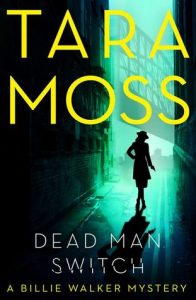 Title: Who Gets to Be Smart (Goodreads)
Title: Who Gets to Be Smart (Goodreads)
Author: Bri Lee
Published: Allen & Unwin, 2021
Pages: 296
Genres: Non-Fiction
My Copy: Library Book
Buy: Amazon, Book Depository (or visit your local Indie bookstore)
I love the idea that Bri Lee decided to write this book even though she had an agreement with her publisher to write some fiction. There’s something about this that really sticks with me, just the idea that Bri Lee was so passionate about this topic that she neglected her other projects and focused on this topic. Who Get to be Smart is such a work of passion, anger and needing to understand the world and I really enjoyed that experience. I have seen reviews that talk about this book as being unfocused or “all over the place”, for me I think that was what made this such enjoyable read. I felt like this book reads in a way that makes it feel like Bri Lee was having a conversation with me.
The book starts talking about her friend Damian, who was awarded a Rhodes Scholarship. Looking at the Rhodes Scholarship she came to the realisation that she was no longer eligible to apply for this scholarship due to her age . The requirements for this scholarship is tough, not only do you require some scholastic merit, you also have to have sporting achievements and “qualities of manhood, truth, courage and devotion to duty”. It wasn’t until a 2018 revision of the selection criteria that the wording was more gender neutral. Also, you must be 25 years and under if you were considering this international scholarship. The Rhodes Scholarship accepts about 0.7% of the global applicants.
Australia has recently attempted to do something similar to the Rhodes Scholarship, which has been a disaster. The Ramsay Centre for Western Civilisation was launched by the former prime minister John Howard and has received plenty of backlash. Originally planned for the Australian National University, I believe it is now at the Wollongong University. Trying to set up a scholarship fund like this in 1902 would have been easier than trying to create it now. Many of the criticism revolves around the idea of awarding a very small group of people verses using the funding to lower education costs for everyone.
Who Get to be Smart focuses on the privileges provided to the wealthy, not just with these scholarship programs, but also private schooling and science grants. The majority of this book looks at the way location, wealth and race all play a part in the education of people. Bri Lee also looking into the effects of COVID-19 and the Black Lives Matter protests might have on the future of education.
There is so much in this book and I really enjoyed the way Bri Lee approached the topic. The writing style was the highlight for me, she takes this conversationalist approach that made this so easy to read. I really like the way this is written and would probably make for a great audiobook or podcast. Not only is she providing her thoughts and giving us the information, but she is doing it in a accessible way, with a touch of anger, humour and self-deprecation. This is my first Bri Lee book and the topic really appealed to me, because I do like her writing style, I do wonder if I should try Beauty or Eggshell Skull. I want to read more non-fiction like this, not just about education but also the same ‘laid-back’ conversationalist style, so if you have any suggestions, I would love to hear them.

 Title: Dead Man Switch (
Title: Dead Man Switch ( Title: At Dusk (
Title: At Dusk ( Title: How To Talk About Books You Haven't Read (
Title: How To Talk About Books You Haven't Read ( Title: Trick (
Title: Trick ( Title: Fever and Spear (
Title: Fever and Spear ( Title: The Shape of the Ruins (
Title: The Shape of the Ruins ( Title: The Sound of Things Falling (
Title: The Sound of Things Falling ( Title: Like a Fading Shadow (
Title: Like a Fading Shadow ( Title: The World Goes On (
Title: The World Goes On (